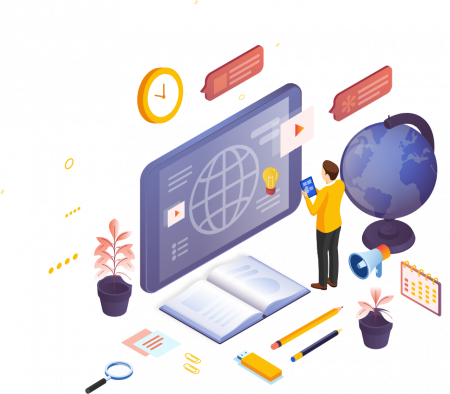Specializing in one area is no longer sufficient in today’s rapidly changing workforce when market forces and technological breakthroughs are reshaping industries at a rate never seen before. For overseas students stepping into their professional journeys, the ideas of reskilling and upskilling become increasingly important, as they provide a path to success in a fast-paced business environment.
Understanding Upskilling and Reskilling
Upskilling and reskilling have become essential tools for both companies and people in an ever-evolving workplace. Upskilling is the process of improving and refining existing skills to perform better in the current role and keep professionals competent and up-to-date. Conversely, reskilling—also known as professional recycling—trains individuals for completely new roles inside a company, promoting flexibility and adaptability.
The workforce is becoming increasingly in need of agility and flexibility due to digitalization, technological breakthroughs, and unanticipated outside influences reshaping work environments. Retraining and upskilling emerge as essential strategies to address skill gaps, prevent companies from hiring outside talent, and give staff members opportunities for internal promotion. Accepting lifelong learning not only maintains current skill sets but also creates opportunities for career development.
Trends in Upskilling and Reskilling for 2023

Looking ahead, a dual emphasis on hard and soft skills characterizes the landscape of upskilling and reskilling. Employers continue to place a high value on technical proficiency in fields like big data, cloud computing, machine learning, and artificial intelligence. At the same time, there is a growing recognition of the significance of soft skills such as communication and emotional intelligence. In response to changing industry needs, the synergy between technical and interpersonal abilities is becoming essential for labor productivity.
As society and technology continue to change as a result of the pandemic’s long-lasting effects and the emergence of green tech, a comprehensive talent development strategy is taking shape. This method tackles both the technical and human aspects of skill sets, recognizing the relationship between technical expertise and people skills in navigating the complexities of modern corporations.
Embracing Upskilling and Reskilling as International Students
Upskilling and reskilling are not just about staying flexible and updated for international students who are preparing to enter the workforce; they are pathways to career fulfillment and making significant contributions to their chosen fields. Even before a job is formally launched, proactive participation in ongoing education can pave the way for success. Exploring electives outside of one’s primary field and keeping up with industry advancements—particularly in big data, machine learning, and artificial intelligence—positions foreign students for long-term success and a competitive advantage in the labor market.
Important Things to Know About Upskilling and Reskilling for International Students
1. Start Early
Before formally joining the workforce, start reskilling and upskilling yourself by taking elective courses and keeping up with industry trends.
2. Versatility Matters
Be open to learning outside of your field of study to build a flexible skill set that will help you adjust to the quickly changing demands of the workforce.
3. Balancing Act
Acknowledge that hard and soft skills are equally important and that having both technical expertise and interpersonal skills is essential for long-term career success.
Sources:
- Lee, B. (2023, November 8). Upskilling and reskilling: Adapting to evolving skill demand. Hot Courses Abroad. Retrieved from https://www.hotcoursesabroad.com/study-abroad-info/career-prospects/upskilling-and-reskilling/




